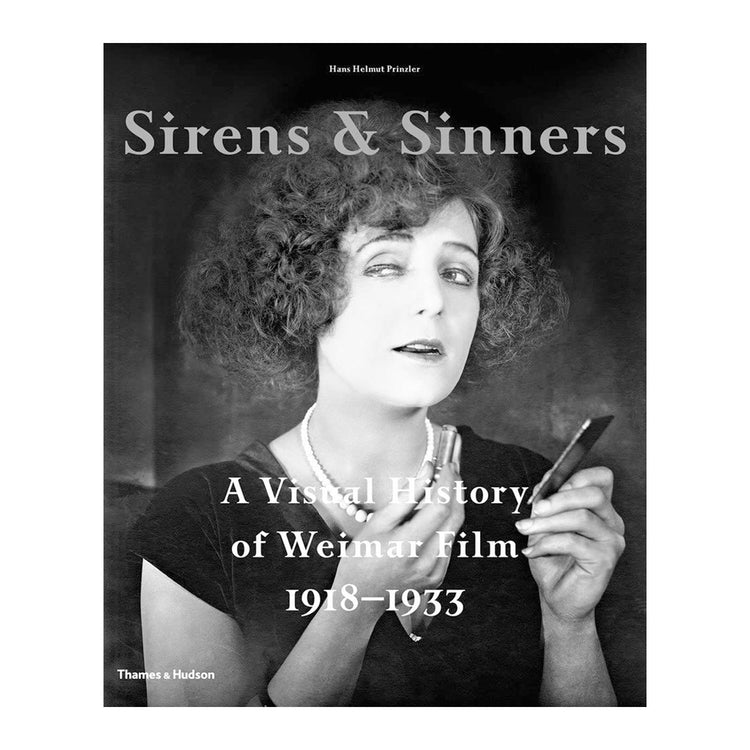Sirens and Sinners by Hans Helmut Prinzler
Description
More
Less
Between the First and Second World Wars, under the Weimar Republic, Germany became the scene for one of the most creative periods in film history. Through the silent era to the early years of sound, the visual flair and technical innovation of its filmmakers set an international standard for the possibilities of cinema as an art form, with movies such as The Cabinet of Dr Caligari, Nosferatu, Metropolis, Pandora’s Box and M building a legacy that not only shaped the world of film but also had a lasting impact on all the visual arts.
The selected films give a wide-ranging overview of Weimar cinema at its finest, with daring themes such as sexuality and social issues tackled by iconic stars such as Marlene Dietrich and Louise Brooks. Beautifully reproduced film stills capture the bold visions of great directors such as Fritz Lang and Ernst Lubitsch, while the text sets the historical scene and gives an intriguing insight into what these films meant to the society that created them.
The movement was brought to a close by Hitler’s rise to power in 1933. Many of the greatest directors, screenwriters and actors were forced to flee Germany, a large number making for Hollywood from where their talents were shared with the world.
This beautifully illustrated book, written by one of the foremost authorities on German film, will enthral anyone eager to find out more about this thrilling chapter in cinema history.
Description
Between the First and Second World Wars, under the Weimar Republic, Germany became the scene for one of the most creative periods in film history. Through the silent era to the early years of sound, the visual flair and technical innovation of its filmmakers set an international standard for the possibilities of cinema as an art form, with movies such as The Cabinet of Dr Caligari, Nosferatu, Metropolis, Pandora’s Box and M building a legacy that not only shaped the world of film but also had a lasting impact on all the visual arts.
The selected films give a wide-ranging overview of Weimar cinema at its finest, with daring themes such as sexuality and social issues tackled by iconic stars such as Marlene Dietrich and Louise Brooks. Beautifully reproduced film stills capture the bold visions of great directors such as Fritz Lang and Ernst Lubitsch, while the text sets the historical scene and gives an intriguing insight into what these films meant to the society that created them.
The movement was brought to a close by Hitler’s rise to power in 1933. Many of the greatest directors, screenwriters and actors were forced to flee Germany, a large number making for Hollywood from where their talents were shared with the world.
This beautifully illustrated book, written by one of the foremost authorities on German film, will enthral anyone eager to find out more about this thrilling chapter in cinema history.
You May Also Like





